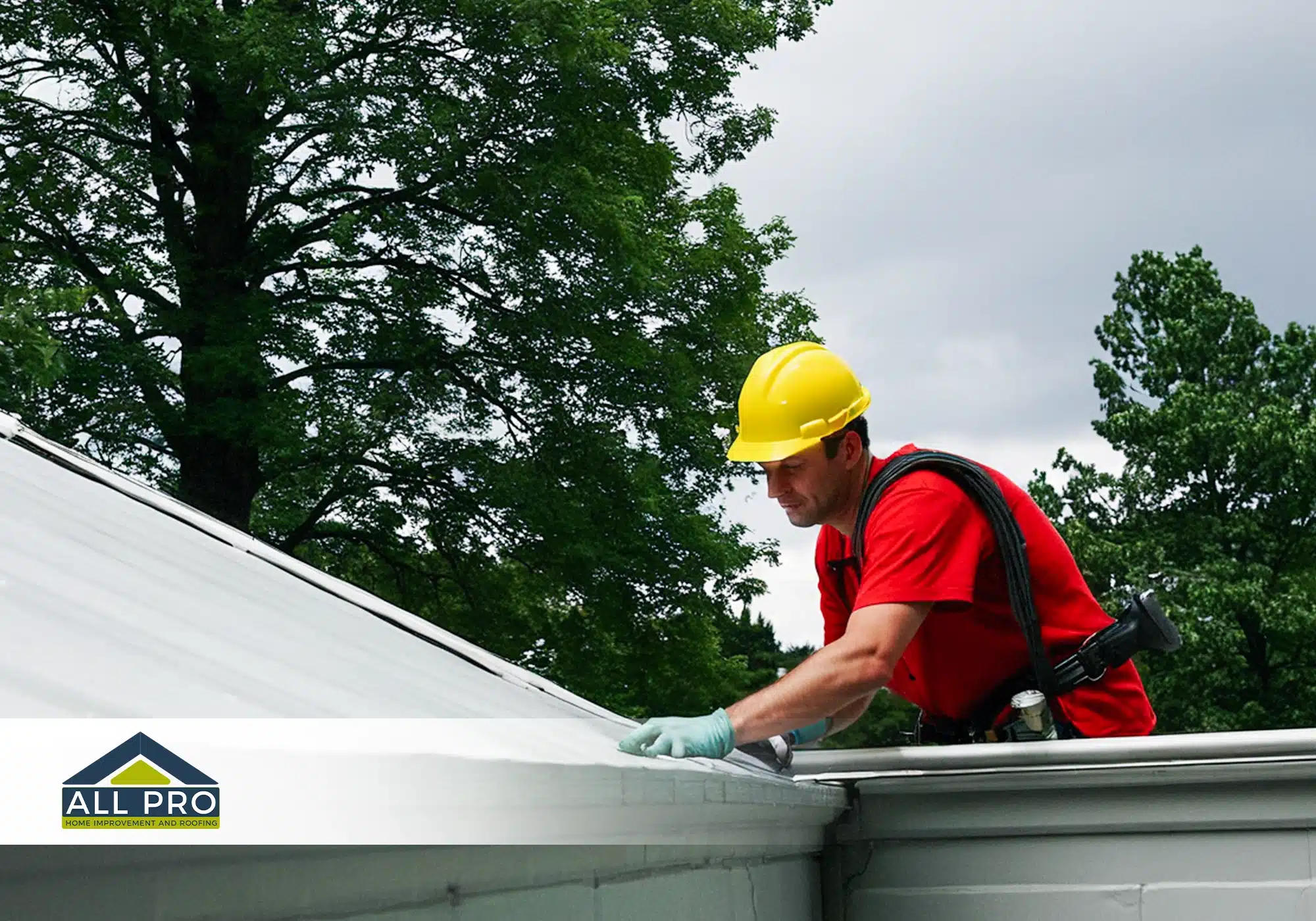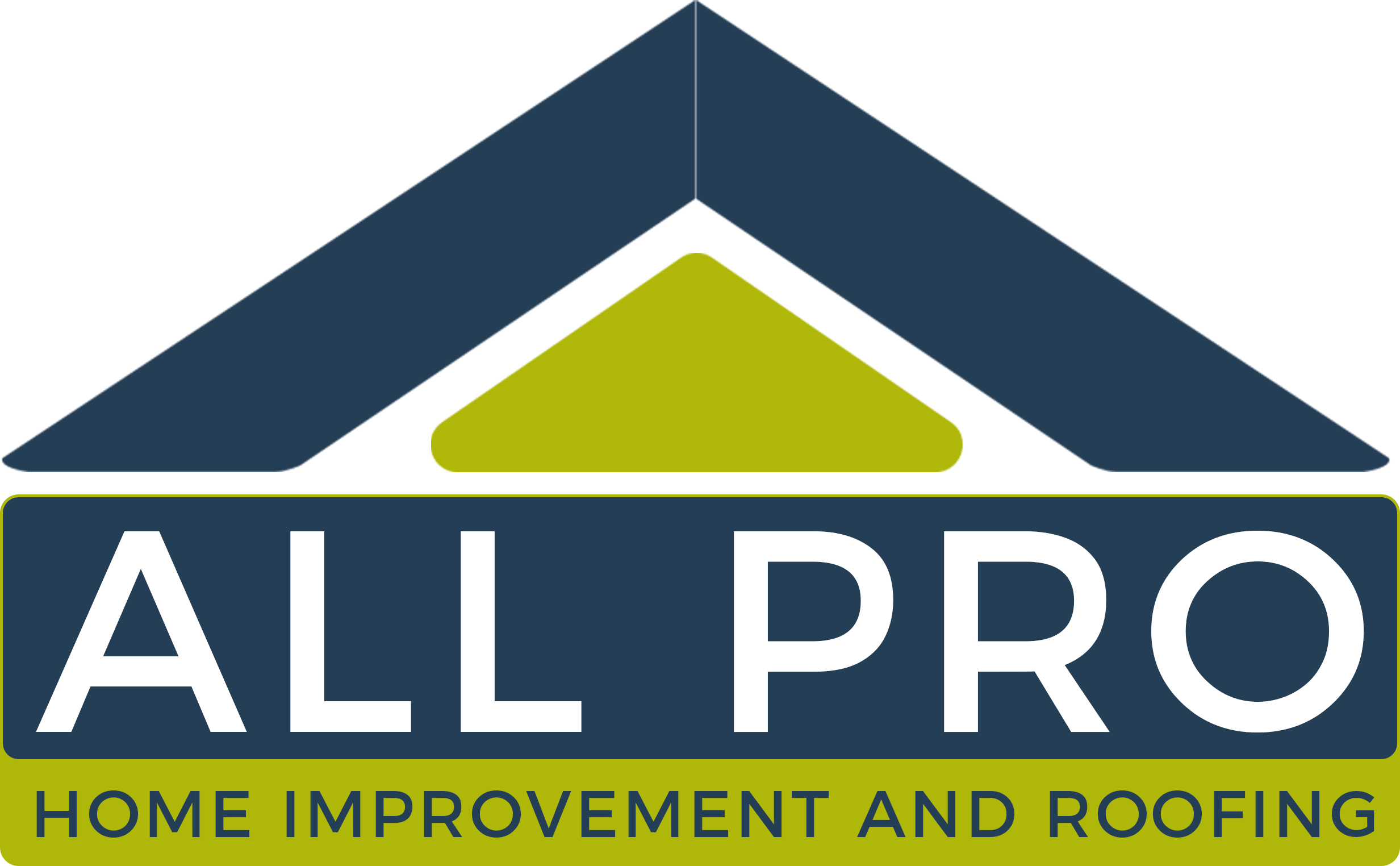
All Pro Home Improvement and Roofing specializes in high-quality commercial roofing services tailored to meet the unique needs of businesses. With a focus on durability and reliability, our skilled team utilizes the latest materials and techniques to ensure your commercial roof not only withstands the elements but also enhances the overall aesthetic of your property. We understand that a well-maintained roof is crucial for protecting your investment and ensuring the safety of your employees and customers. Whether you need a new installation, routine maintenance, or emergency repairs, All Pro Home Improvement and Roofing is dedicated to delivering exceptional workmanship and customer service you can trust.
Many variables come into play when determining roofing costs. Factors such as the choice of materials, the complexity of the roof design, and geographical location significantly influence the overall budget. For instance, traditional materials like asphalt shingles may be more economical upfront, while metal roofs or tile could entail a higher initial investment but offer longer lifespan and durability. The local climate also impacts material performance; regions prone to high winds or heavy rainfall may require additional reinforcements or specialized roofing materials, thus affecting the budget.
Labor costs can vary widely depending on the contractor's experience and the intricacy of the installation. A simple flat roof may demand less time and effort compared to a pitched roof with multiple skylights. Additionally, the type of warranty offered can affect pricing, as extended warranties on materials like PVC or TPO may lead to higher costs. Homeowners should also consider future maintenance requirements and the potential need for preventative measures, which are often influenced by the local environment and the choice of roofing materials.
When selecting materials for commercial roofing, it is crucial to consider the specific needs of the building and the environmental conditions of the location. Options like EPDM, TPO, and PVC are popular due to their durability and resistance to extreme weather. Slate and metal roofs offer longevity but come with higher upfront costs. Local climate factors, such as heavy rain or hail, may also dictate the choice of materials to ensure effective waterproofing and protection. Additionally, insulation rated by R-value contributes to energy efficiency, ultimately impacting long-term operational costs.
Labor costs vary based on the complexity of the roofing system and the experience of the contractors involved. High-quality installation requires skilled professionals who understand the nuances of material properties and proper fastening techniques. Factors like foot traffic on the roof and adequate drainage systems must also be factored into labor evaluations. Contractors in regions like San Diego may have different pricing structures than those in states like Minnesota, reflecting both local market dynamics and the challenges posed by the specific climate. This investment in quality workmanship helps prevent issues such as leakage, which can arise from improper installation.
Insulation plays a crucial role in the overall effectiveness of a roofing system. It not only enhances energy efficiency by regulating indoor temperatures but also contributes to moisture control. Proper insulation ensures that heat remains trapped in the building during colder months while keeping it out in the summer. This balance can significantly reduce energy costs over time, making it a valuable investment for property owners. In regions prone to extreme weather conditions, such as snow or rainstorms, effective insulation can provide an additional layer of protection against potential water damage.
The choice of insulation material is also vital for achieving optimal results. Options like thermoplastics and thermosets offer varying levels of insulation effectiveness and durability. Additionally, careful consideration of the insulation's compatibility with existing roofing materials, such as tile or shingle roofing, is essential. A well-insulated roof can enhance the overall longevity of the roofing system, thereby reducing the need for frequent repairs or complete replacements. As homeowners seek to improve their building’s energy efficiency, insulation remains a key factor to consider.
Investing in energy-efficient roofing systems can lead to significant cost savings over time. Materials such as cool roofing membranes reflect sunlight and help reduce heat absorption, which in turn lowers cooling costs during hot months. Built-up roofing (BUR) options often include layers of water-resistant materials that improve thermal performance while protecting against potential water damage. Incorporating proper insulation, such as XPS foam boards, can further enhance the roof's R-value, ensuring that buildings maintain comfortable indoor temperatures without straining HVAC systems.
In addition to the immediate benefits of reduced energy bills, eco-friendly roofs can increase the longevity of a building. High-quality materials like galvanized steel and thermoplastics resist corrosion and weathering, extending roof life. Enhanced durability means fewer repairs and replacements, leading to greater long-term savings. As sustainability becomes a priority in commercial construction, opting for energy-efficient roofing solutions not only supports environmental goals but also contributes to a property's overall value.
Choosing the right roofing contractor is critical for ensuring the longevity and performance of your roof. It is essential to evaluate a contractor's reputation in the community. Potential clients should look for reviews, testimonials, and references that speak to the quality of previous work. Contractors with strong reputations often invest in their training and use high-quality materials, such as EPDM rubber and polyisocyanurate, which can enhance thermal resistance.
Before making a final decision, it’s important to ask specific questions that touch on the contractor's experience and knowledge of building codes and roofing specifications. Inquiring about their sourcing of materials, including the use of recycled options or composites, can provide insight into their commitment to environmentally friendly practices. Additionally, understanding the warranty and maintenance services they offer will help ensure that you are covered in case of any future issues related to extreme weather, such as storms or heavy snowfall.
Homeowners often overlook the importance of asking the right questions when hiring a roofing contractor. Clarifying the contractor’s experience with specific materials, such as polyolefins or slate, can provide insight into their expertise. It's essential to discuss the various types of roofing systems, including traditional shingles and more modern options like SPF foam, which could influence both aesthetics and energy efficiency. Additionally, understanding the warranty options available for materials and workmanship helps ensure long-term satisfaction with the investment.
Another critical aspect is the contractor's approach to routine maintenance and repairs. A reliable contractor should be willing to outline their process for addressing potential issues like leakage or the wear and tear on materials such as rubber or metal. It's also wise to verify their insurance coverage to safeguard against potential liabilities. Asking for references from previous clients can reveal insights into their work quality and user experience, giving you confidence in your choice for a reliable roofing partner.
The cost of commercial roofing can be influenced by several factors including the type of materials used, the size and complexity of the roof, labor costs in your area, and any additional features like insulation or drainage systems.
When selecting roofing materials, consider factors such as durability, climate, energy efficiency, and your budget. Common options include TPO, EPDM, PVC, and metal roofs, each with its own benefits and drawbacks.
Insulation is crucial in commercial roofing as it helps regulate indoor temperatures, enhances energy efficiency, reduces heating and cooling costs, and can contribute to overall comfort within the building.
Energy-efficient roofing materials can reduce energy consumption by keeping buildings cooler in the summer and warmer in the winter, leading to lower utility bills over time. Additionally, some energy-efficient options may qualify for tax credits or rebates.
Before hiring a roofing contractor, ask about their licensing and insurance, experience with commercial roofing projects, references from past clients, warranty options, and their process for handling unexpected issues during the project.


Copyright © All Pro Home Improvement and Roofing. All Rights Reserved
